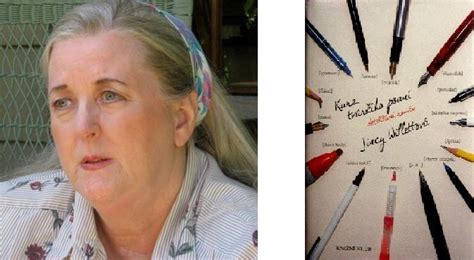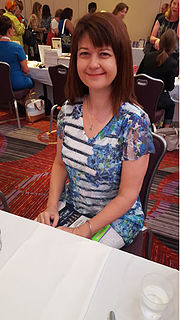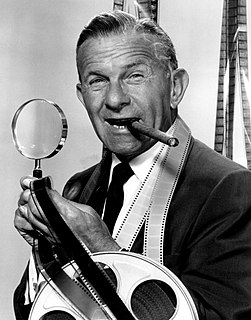A Quote by Edwidge Danticat
The best moment in writing any book is when you just can't wait to get back to the writing, when you can't wait to re-enter that fictional place, when your fictional town feels even more real than the town where you actually live.
Related Quotes
Reading was not an escape for her, any more than it is for me. It was an aspect of direct experience. She distinguished, of course, between the fictional world and the real one, in which she had to prepare dinners and so on. Still, for us, the fictional world was an extension of the real, and in no way a substitute for it, or refuge from it. Any more than sleeping is a substitute for waking." (Jincy Willett)
One of the things that makes characters real is details. Life offers a lot of details. You just have to choose and use them wisely. When you give them to fictional people and a fictional story, their purpose and their meaning changes, so it's best to see the version in the book as fiction entirely, wherever it started out.
We'd decided to write a book about two friends. I gave her some coffee and then we sat there not knowing what to do. How do you start writing a book together? So Kate [DiCamillo] got up after about 10 minutes into this endeavor, and said, 'Well, that was fun,' and started to head out the door. I said, 'Wait, wait, wait, no no no,' because I'm a bit more patient.
Kafka is one of my very favorite writers. Kafka's fictional world is already so complete that trying to follow in his steps is not just pointless, but quite risky, too. What I see myself doing, rather, is writing novels where, in my own way, I dismantle the fictional world of Kafka that itself dismantled the existing novelistic system.
Writing fiction lets you be a little more emotional and unguarded, a little freer. Writing fictional characters is also really different from writing about real people. In nonfiction, you can only say so much about the people you interact with. After all, they're actual people, their version of their story trumps yours. In a novel, you can build a character, using certain parts or impressions of someone you know, and guessing or inventing others, without having to worry that your guesses or memories or inventions are wrong.







































